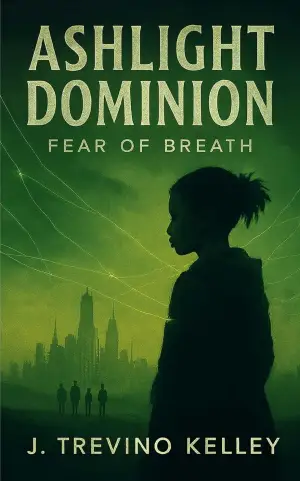I recently finished reading "Older" by Jennifer Hartmann, and I have to say, it left quite an impression on me. I was drawn to this book by the enticing combination of themes: forbidden love, age-gap romance, and emotional depth. Slow-burn romances always intrigue me, and I was curious to see how Hartmann would tackle such sensitive subjects.
The story revolves around Halley, a young woman searching for solace after enduring a loveless household. The moment she meets Reed, her best friend’s father, while drowning her sorrows, the narrative ignites with an unspoken connection. As the description aptly captures, "Before he discovered my age, he uncovered my heart." The complexities of their relationship—from friendship to romance—unfold in such a nuanced way that it feels both respectful and compelling. Their emotional journeys are beautifully rendered, making the readers feel every heartbeat of their story.
One of the standout aspects of "Older" is its emotional authenticity. Hartmann’s writing pulls you in with layer upon layer of emotional turmoil and growth. As Rebekah Ausbrooks mentioned in her review, the tension and emotional struggles between the characters are gripping and well-written, seamlessly incorporating elements of past trauma. It’s a fresh take compared to other books in the genre that sometimes rely on cliché plot devices. Instead, Hartmann crafts a narrative that feels rich and real—not merely a vehicle for "spice."
The characters themselves are deeply developed. I found Halley’s journey heartbreaking yet inspiring; her resilience amidst abuse makes her all the more relatable. Reed, on the other hand, balances his parental role with a yearning heart, and their chemistry—though forbidden—comes across as tender and earned. Like Christie Hopson pointed out, their connection evolves over time, enhancing the authenticity of their budding romance, especially given that no romantic involvement occurs until Halley is of age.
However, "Older" isn’t without its drawbacks. The pacing is sometimes a point of contention; while I enjoyed the slow build, there were moments when I felt it dragged, leaving me eagerly yearning for faster progression. This sentiment aligns with some feedback I read, where a few readers found the slow-burn element a little too prolonged. Furthermore, Jianna Estoesta’s critique resonated with me as well—how Halley sometimes makes impulsive decisions that seem selfish, complicating her relationship with Reed. While her backstory makes her sympathetic, it could have been balanced with moments of self-awareness to draw her character closer to maturity.
Visually, I appreciated the nostalgic references to the ’90s, which added an extra layer of charm. As someone who loves the era, it was delightful to see the cultural markers Hartmann wove into their story. The emotional weight of the book, paired with humor and wit, made for a well-rounded reading experience that kept me engaged.
Overall, "Older" is a captivating read that delves into the messy emotions surrounding love and healing. It struck a perfect balance of ache and hope, weaving a narrative that stuck with me long after I closed the book. I wholeheartedly recommend this story to anyone who appreciates nuanced romance filled with emotional depth and character development.
If you’re ready for an age-gap romance that challenges taboos while exploring love’s complexities, "Older" is definitely worth picking up. Just be prepared to take your time with it, as the journey is as significant as the destination.
Discover the Wisdom of Aging in “Older” >>








